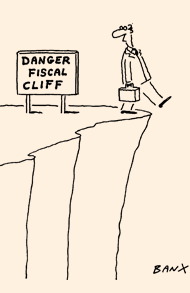Capitalism: red in tooth and claw
Roula Khalaf, Editor of the FT, selects her favourite stories in this weekly newsletter.
It was described with relish in the Delhi newspapers as a “classical mafia-style shoot-out” and a “sensational gunfight”. It was likened to the denouement of a violent Bollywood thriller or to a Harold Robbins novel, “only more incredible”. All this on an otherwise peaceful Saturday afternoon in the Indian capital.
Gurdeep Singh Chadha, better known as “Ponty”, and his younger brother Hardeep both died in a hail of bullets in an exclusive residential area at the weekend as they and their security guards fought each other over a luxury property bought with the proceeds of the family’s controversial business empire.
The violent deaths of the two men at the house in the Chattarpur Farms district immediately revived questions about how they came by the money that led to their demise.
A large part of the answer lies in the murky world of politics and business in Uttar Pradesh, the notoriously corrupt Indian state east of Delhi whose 210m inhabitants make it more populous than Brazil.
The paunchy Ponty, who lost an arm in his youth after the kite he was flying was caught in an electricity cable, befriended politicians in successive state governments and secured a monopoly in the wholesale liquor trade as well as big concessions in drinks retailing. He rapidly expanded a business based on his father’s sugar cane milling operation to build a conglomerate worth an estimated $4bn with investments in liquor, paper, property, multiplex cinemas and the supply of food under a programme for the needy. Among other operations, the Wave Inc group is a franchisee for Coca-Cola in Punjab.

It is tempting to sigh and dismiss Saturday’s shoot-out as the typical byproduct of early-stage capitalism in an emerging economy, akin to events in Thailand or Indonesia 20 or 30 years ago or to the struggle for power among industrialists in Victorian England – only with better weapons. In an A-Z of doing business in Thailand sold in the 1990s, the A was for “assassination”.
Yet middle class Indians are fed up not only with their weekends being disturbed by the neighbours’ AK47s but by the absence of the kind of rules and institutions that would ensure a level playing field for entrepreneurs and justice for India’s 1.2bn people in what is supposed to be a constitutional democracy. Why was it, they ask, that the Chadha brothers were assigned Punjabi policemen as bodyguards in addition to their private security forces?
None of this behaviour is new. Tarun Tejpal’s Tehelka news magazine has for years been exposing police corruption and the collusion between Indian tycoons and politicians and he graphically described the relationship between the powerful and their hired guns in The Story of My Assassins.
Nor is the problem of an institutional vacuum and the cult of the boss-man confined to Delhi. Just as the Chadhas were killing each other, the cosmopolitan residents of Mumbai were fuming over the forced closure of much of the city’s public transport and entertainment by Hindu militants of the Shiv Sena organisation. They insisted that everyone should mourn their leader Bal Thackeray, a former cartoonist and Mumbai powerbroker who also died on Saturday, at the age of 86.
To outsiders entranced by the bustle and wealth of India’s commercial capital, it must have been baffling to see the city grind to a halt because of the natural death of an idiosyncratic extremist who stoked riots against Muslims and expressed admiration for Adolf Hitler. Business is the key to understanding Thackeray’s enduring power. He was initially backed by employers because he helped crush leftwing trade unions, but with the textile sector replaced by finance, Mumbai’s millionaires think the time might have come to promote honest democracy and the rule of law.
Sins of the flesh
The other scandal that caused Delhi-ites to splutter over their morning tea was the publication of a textbook espousing Hindu vegetarianism and warning meat-eaters that their food led them to cheat, lie, “steal and commit sex crimes”.
Fortunately only a few hundred of India’s 1m or so schools were involved, but it was a reminder that Hinduism can be as puritanical as any religion when it comes to food and alcohol. Thackeray was hated by many liberals but they appreciated the fact that he did not hide his liking for beer.
Comments